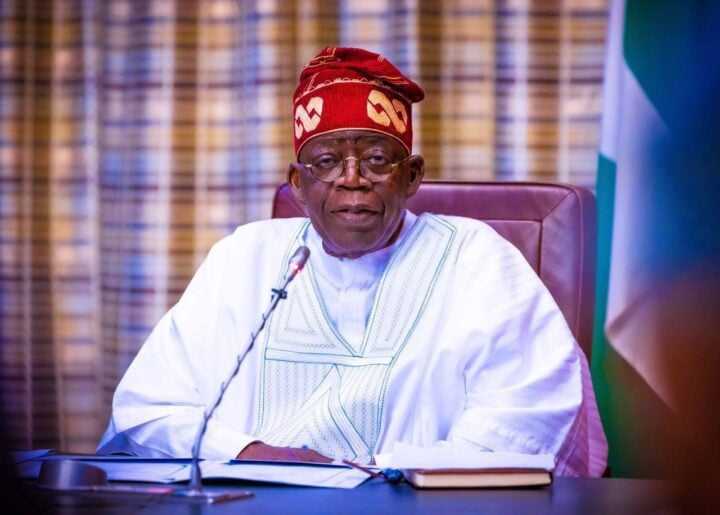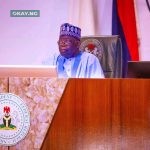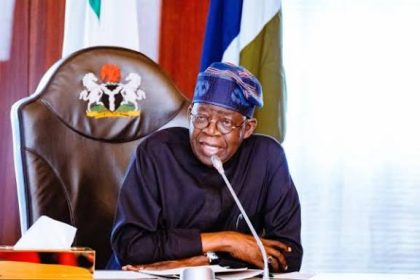The Presidency has disagreed with the recent report by the World Bank that claimed over 139 million Nigerians are living in poverty, describing the figures as exaggerated and not reflective of the country’s current economic realities.
President Bola Ahmed Tinubu’s Special Adviser on Media and Public Communication, Sunday Dare, in a statement on Wednesday through his verified X (formerly Twitter) handle, said that while Nigeria respects its partnership with the World Bank, the data should be understood within the proper global context.
According to Dare, “While Nigeria values its partnership with the World Bank and appreciates its contributions to policy analysis, the figure quoted must be properly contextualised. It is unrealistic.”
He explained that the World Bank’s calculation was based on the international poverty line of $2.15 per person per day, established in 2017 using Purchasing Power Parity (PPP). The Presidency clarified that this figure was a global model and not a direct headcount of impoverished Nigerians.
It further stated that when the $2.15 benchmark is converted to local currency, it equals around ₦100,000 per month at current exchange rates, which is higher than Nigeria’s new national minimum wage of ₦70,000.
“There must be caution against interpreting the World Bank’s numbers as a literal, real-time headcount,” Dare added. “If converted nominally, that figure equals about $64.5 per month, or nearly ₦100,000 at today’s exchange rate—well above Nigeria’s new minimum wage. Clearly, the measure is an analytical construct, not a direct reflection of local income realities.”
He noted that poverty measurement using the PPP system relies on outdated consumption data, the last major survey being in 2018/2019. It often fails to capture the informal and subsistence economic activities that sustain millions of households across Nigeria.
The Presidency described the World Bank’s figure as a modelled global estimate, not an empirical assessment of the country’s present living conditions, stressing that the real focus should be on the direction of change, not just static numbers.
According to Dare, Nigeria’s economy is presently on a recovery and reform trajectory driven by policies aimed at fostering inclusive growth and long-term stability. The administration, he said, has strengthened several welfare and intervention programs to cushion the impact of economic adjustments.
Among these are the Conditional Cash Transfer scheme, which has reached 15 million households through verified digital enrollment via the National Social Register, with over ₦297 billion disbursed since 2023. Also listed were the Renewed Hope Ward Development Programme, which targets all 8,809 electoral wards, and initiatives under the National Social Investment Programmes (NSIP) such as N-Power, GEEP micro-loans (TraderMoni, MarketMoni, FarmerMoni), and Home-Grown School Feeding programs.
Dare also highlighted the Food Security Initiative, which includes the distribution of subsidised grains and fertilizers, partnerships for mechanisation, and the revival of national food reserves to curb inflation on staple foods.
In addition, the Renewed Hope Infrastructure Fund is financing crucial projects in energy, road construction, and housing to cut living costs and create local employment opportunities. The National Credit Guarantee Company is expanding access to affordable credit for small businesses, women, and youth entrepreneurs through partnerships with commercial banks.
The government maintained that President Tinubu’s administration is focused on solving structural economic challenges that have hindered productivity and inclusive growth for decades. It said that reforms like fuel subsidy removal, exchange rate unification, and budget reallocation to productive sectors were tough but essential measures to fix the foundation of the economy.
“Even the World Bank itself has acknowledged that these reforms are already restoring macroeconomic stability and growth momentum,” the Presidency said.
It emphasised that economic recovery must lead to visible welfare improvements for Nigerians. Investments are now being intensified in agriculture, manufacturing, and energy—including new gas-to-power projects and skill development centres—to create jobs and reduce living costs.
“Nigerians should begin to feel visible improvements in food prices, income, and purchasing power as these programmes mature,” the statement added.
The Presidency also said the administration was consolidating all welfare schemes into a unified, data-driven framework under the National Social Register to ensure transparency and accountability.
Okay News reports that this integrated approach is aimed at ensuring that no vulnerable community is left behind, as part of President Tinubu’s broader goal to build “a resilient and inclusive economy where growth directly improves living standards.”
In rejecting the World Bank’s poverty estimate, the Presidency concluded that Nigeria remains committed to empowering citizens, creating opportunities, and building a fairer and more prosperous nation.
Earlier on Wednesday, the World Bank Country Director for Nigeria, Mathew Verghis, had said during the launch of the October 2025 Nigeria Development Update that about 139 million Nigerians were living in poverty, despite recent reform efforts. The report titled “From Policy to People: Bringing the Reform Gains Home” commended Nigeria’s economic policies but warned that their benefits had yet to reach citizens at the grassroots.
Verghis noted that although growth, revenues, and reserves were improving, many households still struggled with weak purchasing power. “Despite these stabilisation gains, many households are still struggling with eroded purchasing power. Poverty, which began to rise in 2019 due to policy missteps and external shocks, has continued to increase even after the reforms,” he said.
Economists and labour leaders, however, remain divided over the matter, with some warning that policy shocks have deepened inflation and worsened living conditions, while others believe that the reforms will yield results over time.
The Presidency insists that reforms must be allowed to mature and that tangible relief for citizens will follow soon as programmes take root across key sectors.







